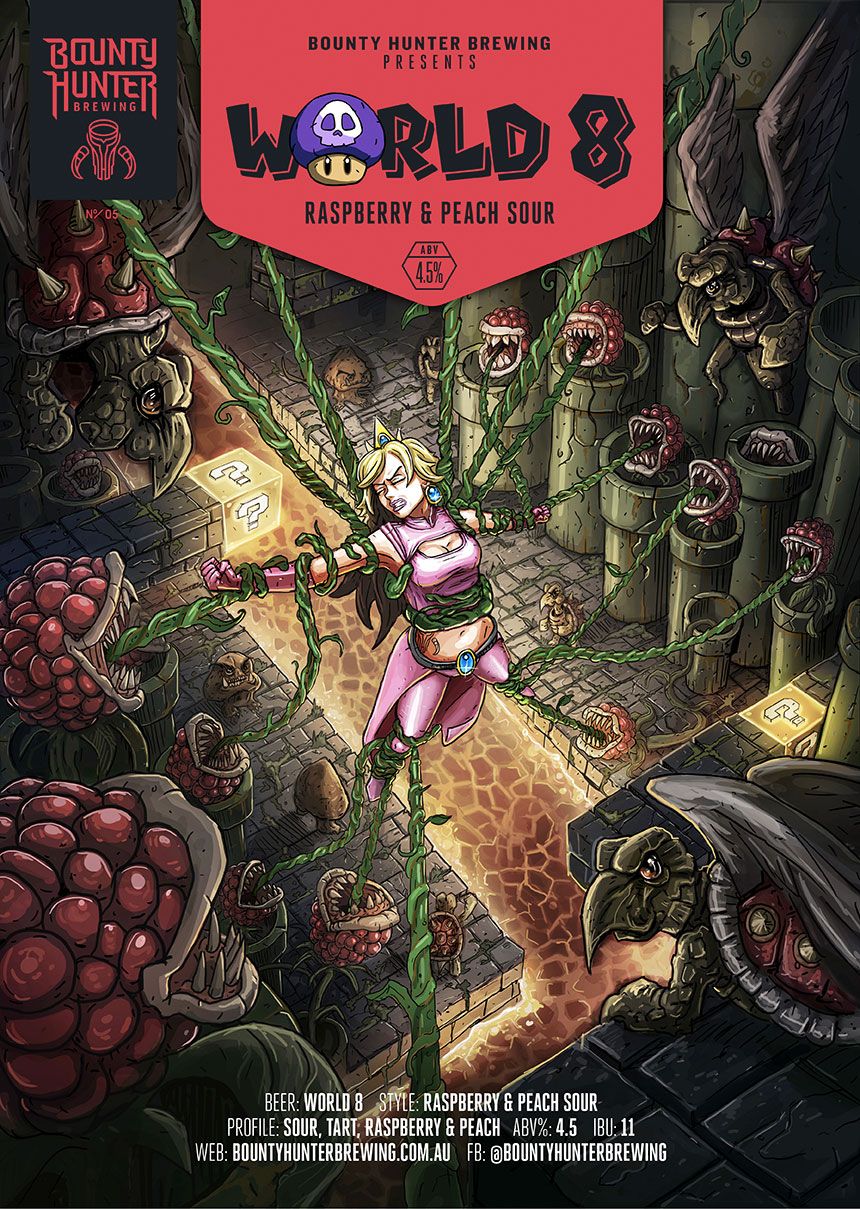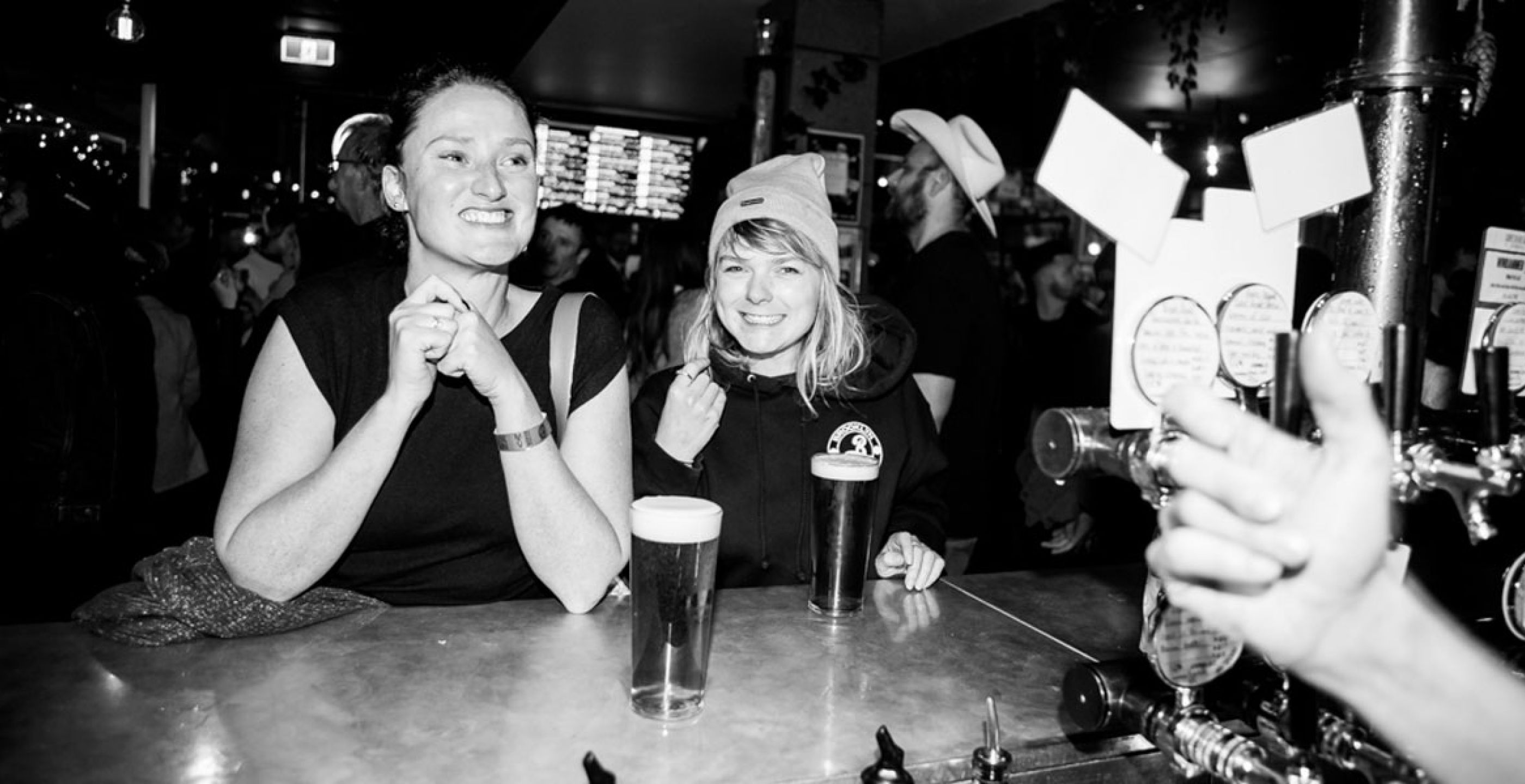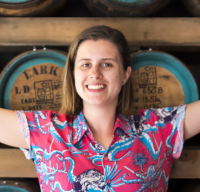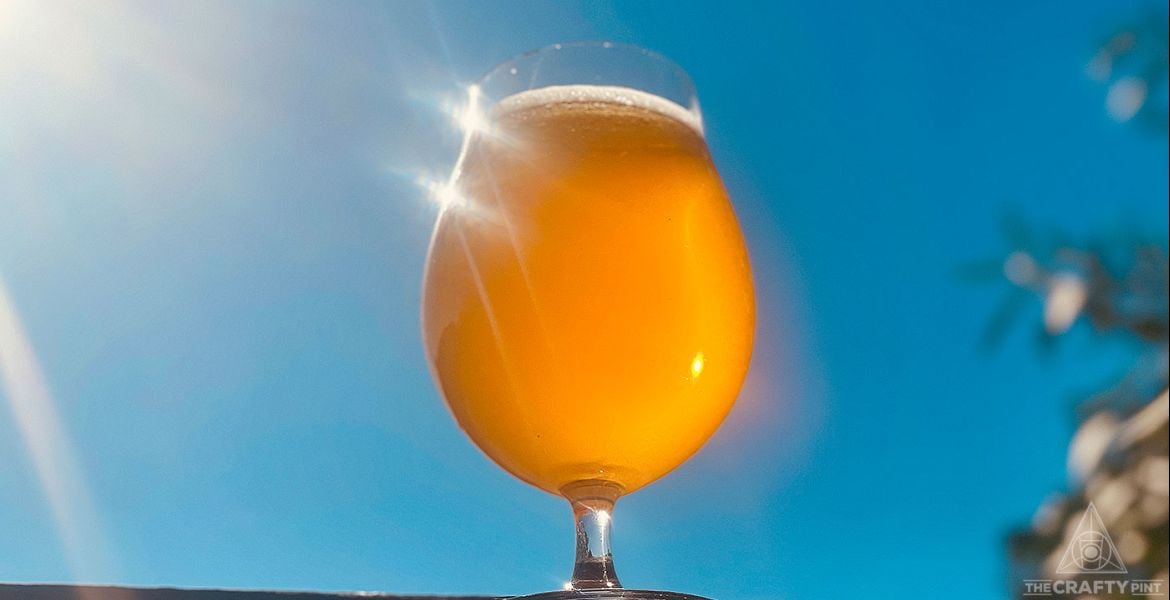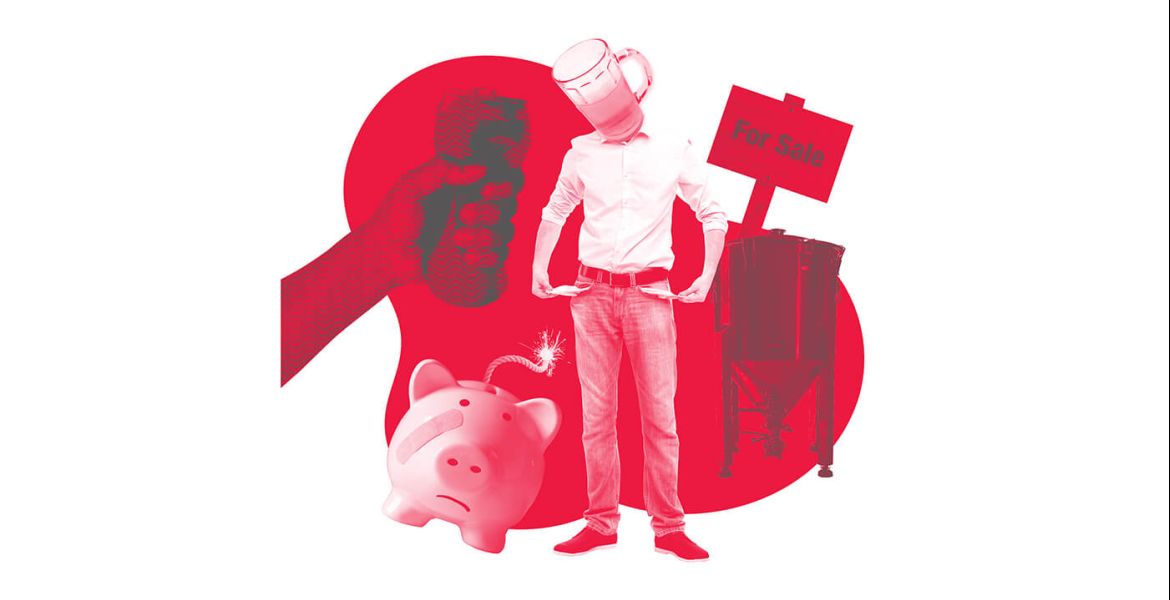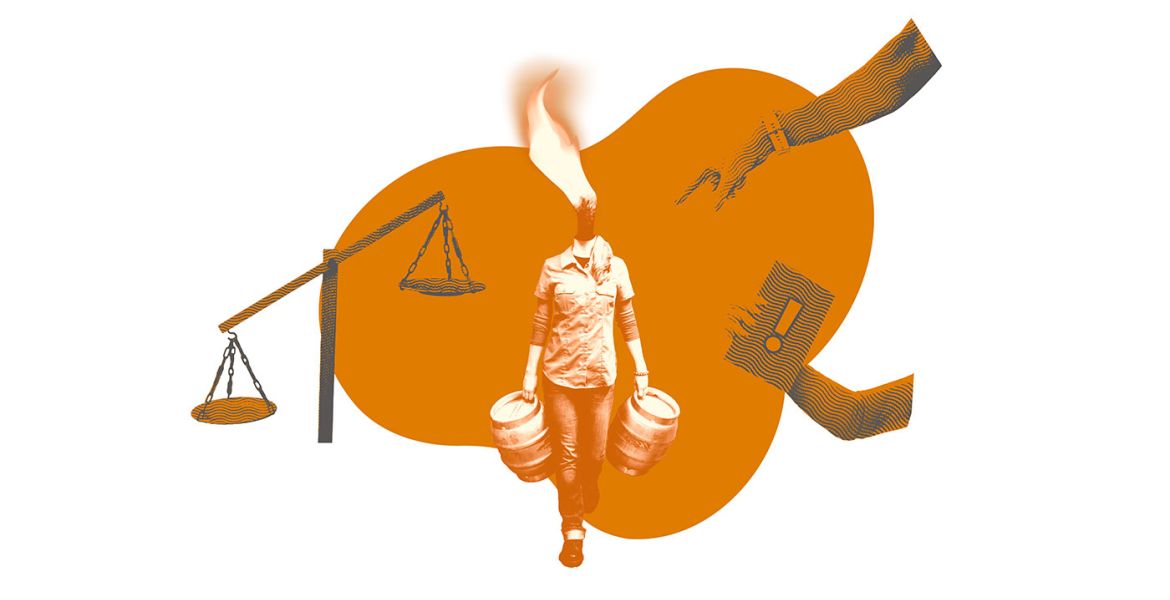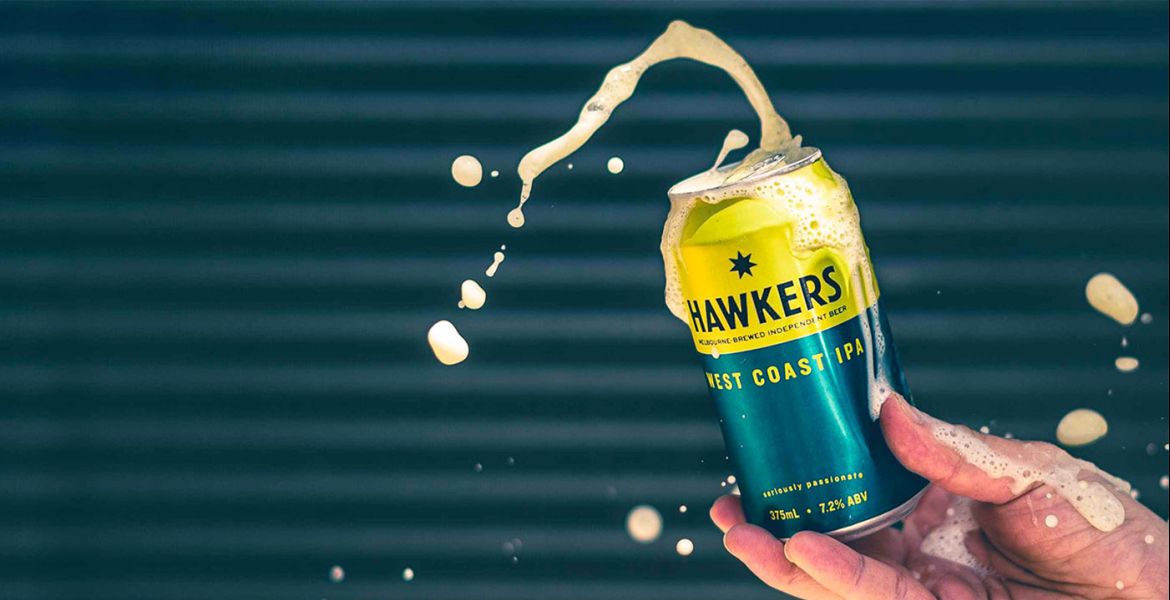It was about two years ago I first noticed it happen. A Sydney brewery had just released a new beer I wanted to try, so I headed over to my local pub on a quiet Thursday afternoon. When I got there, the place was nearly empty, apart from a group of men in the brewery’s merchandise and another person who had entered at the same time, but from the opposite entrance.
We made it to the bar and waited to be served. Almost immediately, one of the guys in the brewery merchandise came up to the other person at the bar.
“Hey mate, we’ve just got a new beer on tap, would you like to try it?”
The customer politely declined and purchased a different beer, and the man shuffled back to his group. He didn’t bother to approach me, even after he overheard me order his beer. Why did he ignore me? Was it because I was a woman and the other customer was not?
Unfortunately, this kind of situation isn’t unique. Being ignored, talked over and recommended the “girliest” drink at beer festivals are common occurrences, not just for me, but for many women, at all levels of involvement in the industry. The situations range from simply having their opinions dismissed, to more sinister occurrences of sexual harassment.
Some turn a blind eye to it, aggressively dismissing it in discussions as a “non-issue”, “political correctness at its worst” and an “attack on all men.” After all, given how much the craft beer industry is touted as being friendly and accepting, the last thing we’d want is to tar it with a word as dirty as sexist. But, when women are being treated differently because of their gender, it’s exactly that.
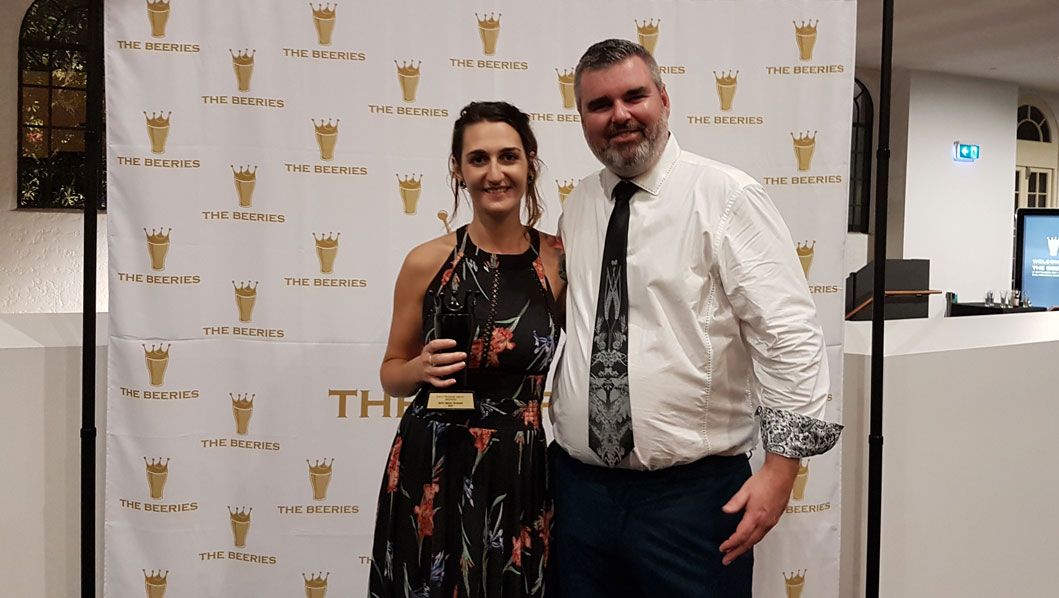
“I had an experience once when I tried to explain the various beers on offer to a group of men at the bar,” says Emily Smith, bartender at Brewski in Brisbane and winner of Best Beertender at the inaugural Beeries awards in 2017.
“They completely ignored me, but as soon as the male co-worker I was with that night walked up next to me, they turned their attention to him and began asking him about the different beers.”
Froth magazine editor Emily Day has been through similar experiences.
“The most common response I get from men when I say I make a beer magazine is, ‘Do you like beer?!’,” she says. “I once got asked that after asking for a beer, at a beer festival that cost $50 to enter, whilst wearing a Froth t-shirt.”
Things can and do become more sinister. As KAIJU! sales rep and industry veteran Fiona Lane recalls: “A couple of years ago, I had a meeting with a guy at the bar and I was wearing a beer shirt with quite a high neck; I didn’t really have anything on show and he spent the whole time looking at my chest.”
These situations may seem innocent enough and too often are brushed aside as a slip of the tongue or a momentary lack in judgement. Worse still, sometimes they aren’t even recognised as an issue at all. But these examples all display an implicit lack of respect for the woman involved, which, when coupled with situations involving alcohol, can simply become dangerous.
Most of the time, the intent behind comments such as these is not malicious. Rather, they stem from an unconscious bias that views beer as a man’s drink, an idea frequently reinforced by the post-industrial era of beer advertising. Yet, look back through history and you realise this idea is a modern confection, given brewing was traditionally a role for women.
As the gatherers, bakers and cooks of many primitive societies, women were perfectly skilled in all the requisite steps of the beer making process. It wasn’t until brewing occurred on a larger, semi-automated scale that women were relegated to the roles of barmaids and bartenders, predominantly as a marketing ploy to entice men to buy beers.
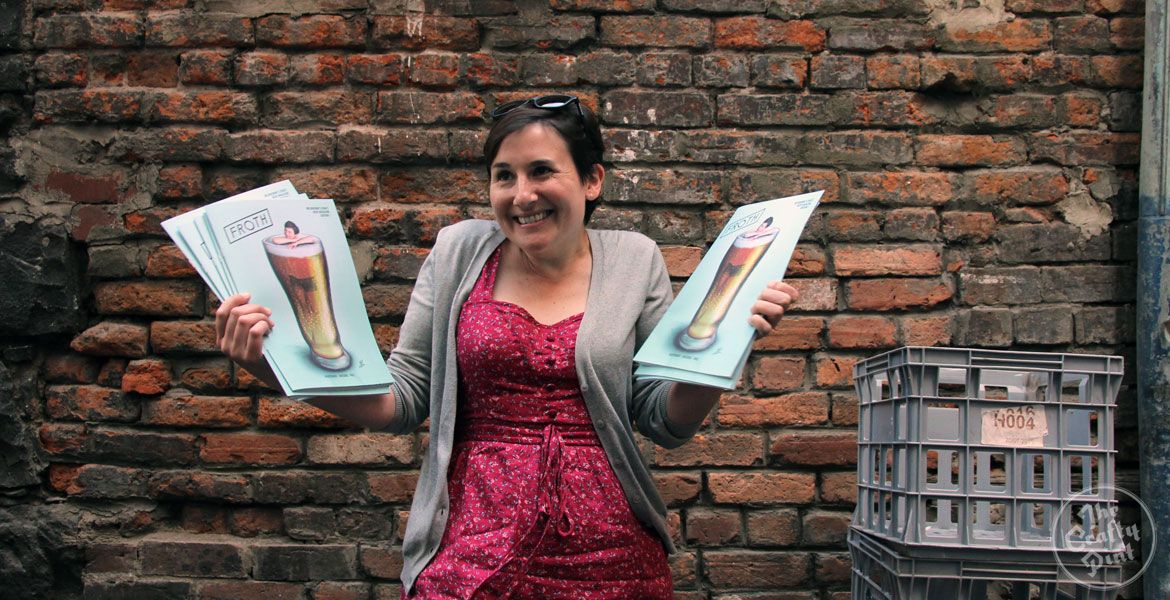
Within the craft beer industry, gendered advertising is much less of an issue than it is for big beer. Instead, these situations are encountered in much more subtle settings. Take, for example, a beer named World 8 released by Sydney-based Bounty Hunter Brewing. The associated artwork (see bottom of article) presents an image of Princess Peach of Mario Brothers fame struggling while wrapped in vines, with cleavage and midriff visible.
In response to backlash about the artwork, artist and Bounty Hunter co-owner Chris Sincek was in two minds about censoring the image. On the one hand, he recognised the potential offense of the “risqué” artwork but, on the other, he had also spent countless hours on the artwork, which had been approved by women in his social circle, including his wife. In the end, the image was removed from social media but responsibility was given to bar owners to choose if they wanted to display the image, in poster format, in their bars.
When asked if he was concerned the image might send the wrong message about his brand, he said “there was no intent of promotion of pornographic or sexual violence of women” and that one only need to sit down for a beer with him to realise he was well intentioned. The issue here is that consumers glancing at the artwork may not understand the intricacies of the design and the intent behind it, instead taking it at face value.
Certainly, when shown the label, Jaega Wise, a London brewery owner who has been at the vanguard of efforts to remove sexualised branding and develop a code of conduct within the British beer industry, her reaction was, simply: “Creepy.”
Jaega, currently in Melbourne for Good Beer Week along with English beer writer Melissa Cole and brewers from London's Fourpure and Affinity, says her move into campaigning “wasn’t planned or intentional”, more a case of falling into it after years of it "grinding me down".
"It all really started with an opportunity to speak at The Brewers Congress near the Houses of Parliament,” she says. “I looked to see who else was talking. There were 12 people and I was the only woman; I thought, ‘This is not really OK’ and decided to do my talk about representation of women in the beer industry.
“I was quite honest, but not particularly emotive – quite factual.”
Her appearance was followed by a week’s holiday.
“Things went a bit mental from there,” she says. “There were tweets from the BBC. Twitter was bleeping every second.”
Since then, she has helped implement a ban on beers with sexist pump clips/decals at beer competitions and is working with SIBA (the Society of Independent Brewers) on a code of conduct.
“You can't make a beer brand look like it's for children, but you can put a half naked woman on it,” she says, adding that, despite support for what she and others are doing, there remains fierce opposition. While outlining what should be in the code of conduct at SIBA's recent AGM, she says she was “shut down” and asked to define why exactly sexism was bad.
As for her advice to brewers, she says: "The question I would ask is, ‘Is this going to encourage women to drink your beer or not? Are you insulting them or degrading them?
“Why do women drink less beer the men? Why shoot ourselves in the foot when we are trying to compete with Prosecco or cider?”
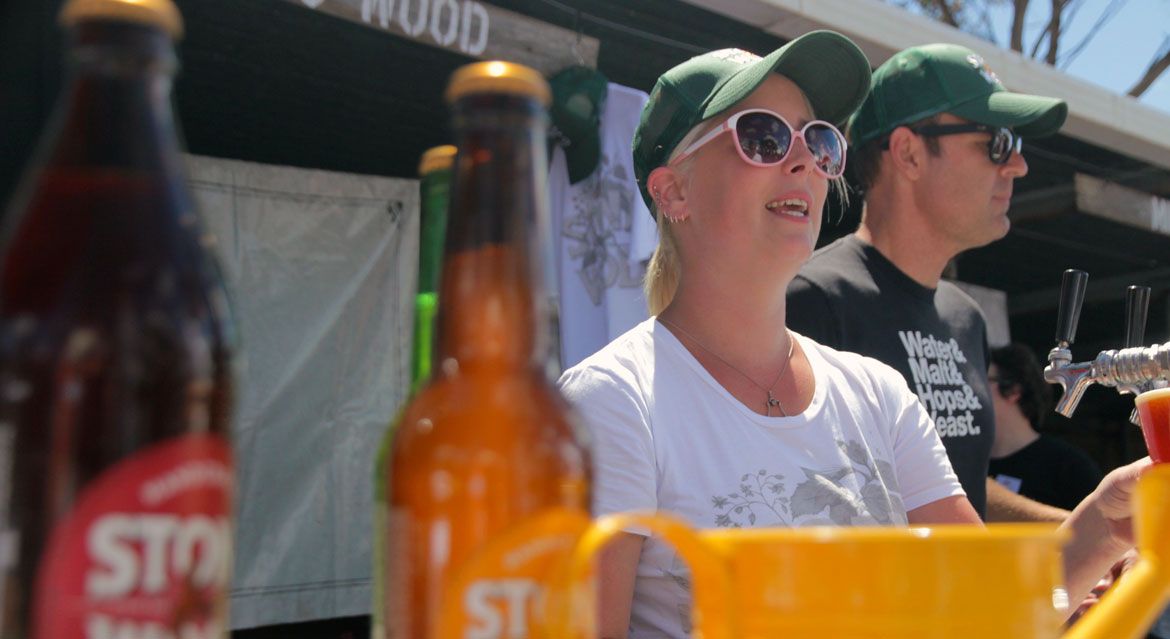
As for Fi (pictured above at a past beer Great Australian Beer Festival in Geelong), she believes the problem in Australia lies more on the consumer side than the industry side.
“There’s definitely a problem with everyone else looking in,” she says. “For the most part, people working in or directly for the brewery are generally supportive of each other. I think the problem lies outside that bubble. There’s so much ingrained sexism in this consumer base that girls really don’t think they have a place in this industry.”
One of the specific examples Fi points out is the use of the term “girl’s beer".
“I still hear things like that,” she says. Indeed, earlier in April, United States based PUNCH Magazine posted an article about the term “bitch beer.” Although Facebook commenters on the post recognised the term isn’t used much here, there were plenty of examples shared that suggested its connotation was identical.
“I do a lot of tastings and the amount of times I pour people a raspberry Berliner Weisse and have to hear, ‘Oh yeah, this one must be popular with the chicks, hey?’ absolutely kills me,” said one commenter. Another said that, in their experience, they have both heard and used the term “girly” to refer to “low carb beers and anything fruity.”
While the use of such terms may simply be down to a choice of vernacular, it is in that same Facebook group that Fi found one of the most confronting examples of sexism in the consumer base.
“Someone made a beer with vagina yeast,” she explains. “The person who posted [about] it did so without comment, but the responses included things like ‘it smells like fish but tastes great’ and ‘it’s a cunt of a beer’. I didn’t understand why we couldn’t just talk about the beer without being derogatory.”
That particular group, which has almost 10,000 members, is moderated by Matt Brown and his (equally gendered) team.
“That stuff gets quickly taken down,” he says. “As the owner of such a large group, I feel like I have to set an example.
“When people in the group ask things like, ‘What’s a good girl’s drink for my wife?’ it may be intended as an innocent question, but things like that in turn make it okay to put a busty woman on the side of a beer can, or have female staff cat-called by drunken dickheads.
“I hope that people don’t just stand there and ignore it when it happens. That’s what makes this behaviour acceptable and then the norm. I do what I can but I can’t change the whole industry – but I have to at least be the change I want to see.”
As for the industry itself, organisations like the Pink Boots Society and campaigning beverage companies like Sparkke Change are helping create a welcoming environment in which women can become involved. For others, the route to change can be much more understated, but just as effective. It can be the difference between referring to someone as a “brewer”, rather than a “female brewer”. It’s the conscious decision not to automatically recommend the weakest or fruitiest beer to a female customer.
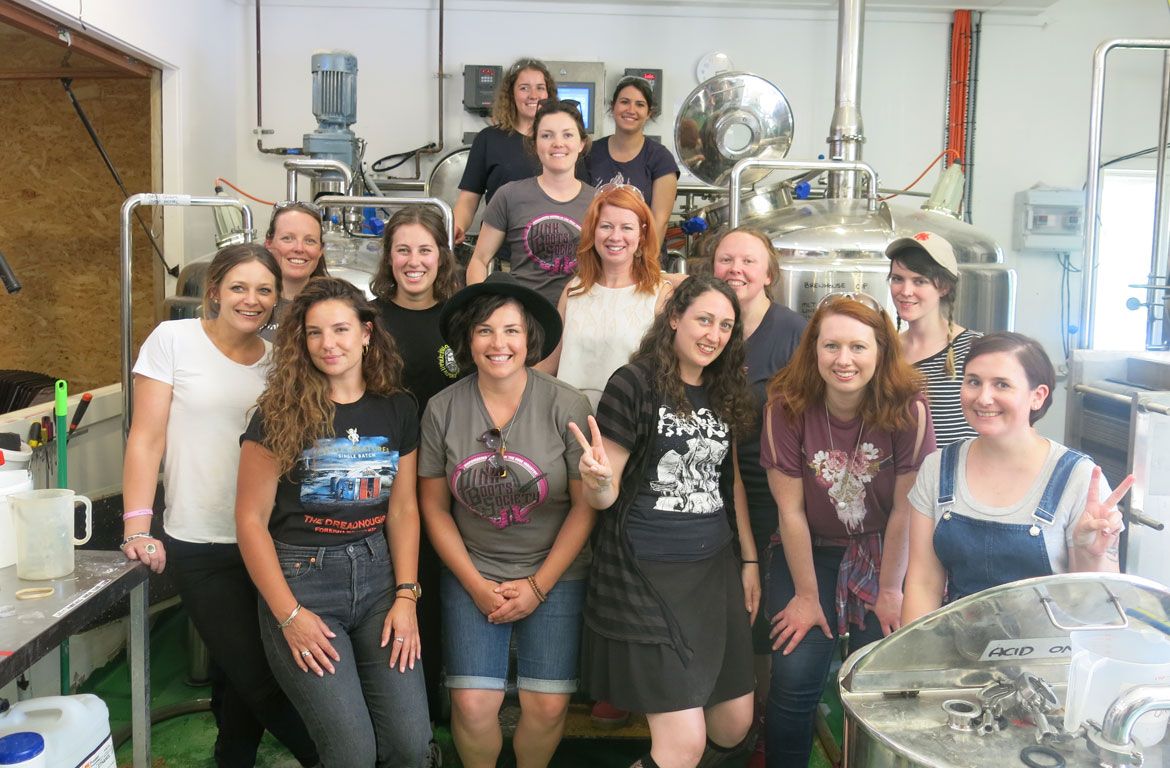
For Topher Boehm, it involved simply putting deeper thought into the name of his business, Wildflower Brewing & Blending.
“I wanted a more androgynous word,” he says, “one without a supposed gender. We would like for our brand, venue and beer to be inviting for people of both sexes.”
That kind of subtle approach is echoed by the organisers of Melbourne’s Good Beer Week, as Kerry McBride describes.
“This year, GBW plays host to British guests Melissa Cole and Jaega Wise, who have been leading the charge on some really important conversations around diversity in the beer industry over the last few months – and in the years preceding that.
“We’re not specifically focusing on women for our 2018 festival, we just happen to have some great women over for it,” she says. “We’ve always had women involved and we make sure our festival is including and welcoming for people from all walks of life. We now hit really close to 50 percent female attendance and we also try to make sure our social media and marketing shows a range of faces, rather than just groups of beards!”
Although this approach is slowly bringing a positive shift in the industry, until a shift occurs on a much larger scale, many women have had to take it upon themselves to change their own attitudes.
Emily, for example, has started seeing her rude male customers are more of a personal challenge.
“I always try and be calm in the response to these situations as, to me, it proves that I know what I’m talking about,” she says. “I have never since been offended from what men say to or about me. I thrive on it as it makes me want to learn more and prove them wrong!"
As for Fi, she’s had to become a little “rougher around the edges” in order to not let things bother her. “I have a sense of humour and I try not to be too precious, but I don’t want my daughter to have to accept it in the same way I do.”
In reality, change has to come from many different frontiers, in the form of open discussions and a shift in the minds of industry and consumers alike. It’s important to realise that even if it doesn’t happen to you, or if it doesn’t personally offend you, there are people out there affected by it. And Fi wants you to know if you are one of those affected, you’re not alone.
“Women need to know that they are supported and that there are people willing to listen. It’s important to let people know if you’re being treated badly by someone. It’s not just your cross to bear.”
Photo at top of article is from the 2018 Good Beer Week Opening Party by Anthony Strong.
Anyone looking for support can contact:
- Beyond Blue on 1300 22 46 36
- Lifeline on 13 11 14
And more on the Pink Boots Society can be found here.
The World 8 label from Bounty Hunter
